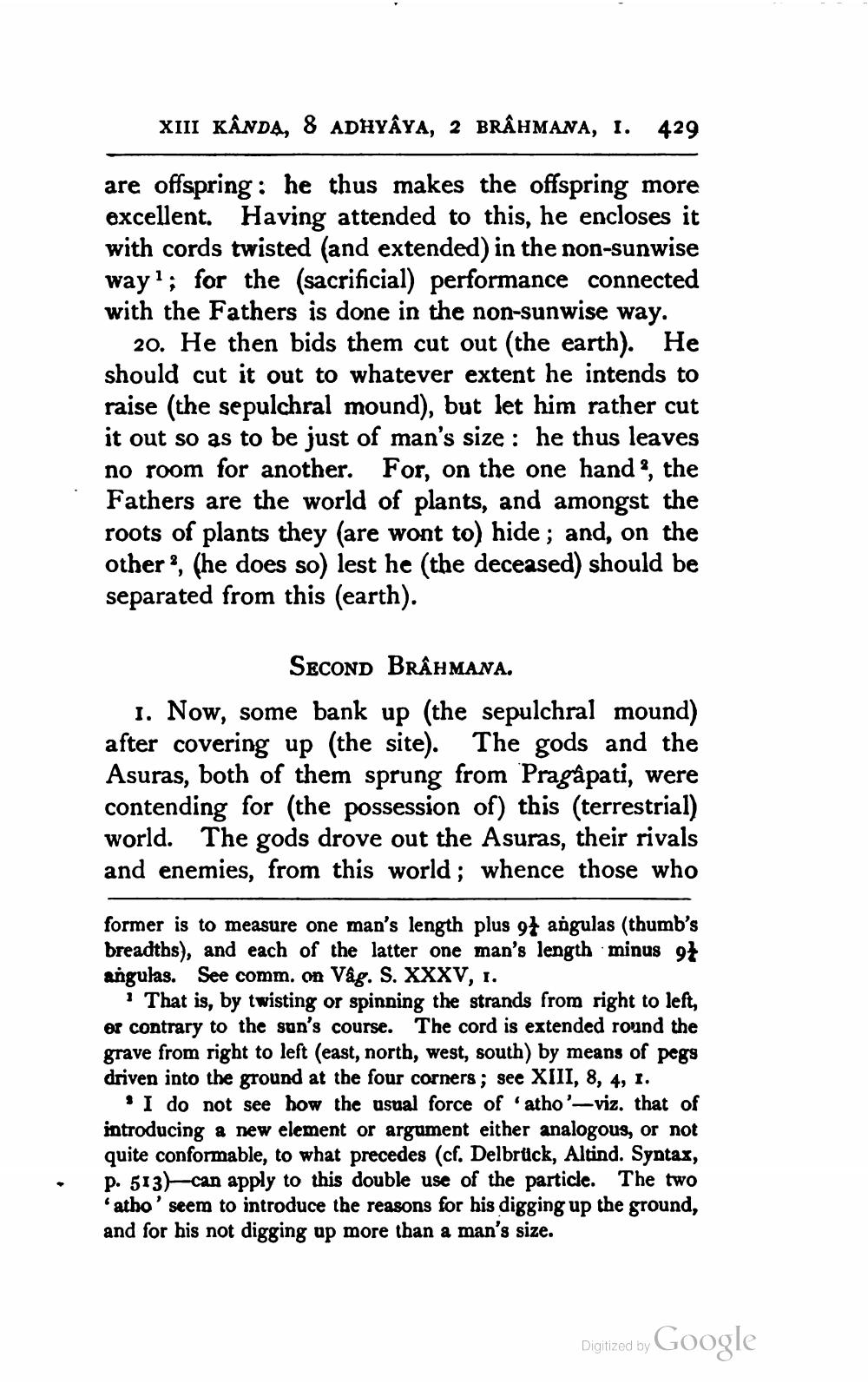________________
XIII KÂNDĄ, 8 ADHYAYA, 2 BRÂHMANA, I. 429
are offspring : he thus makes the offspring more excellent. Having attended to this, he encloses it with cords twisted (and extended) in the non-sunwise way'; for the sacrificial) performance connected with the Fathers is done in the non-sunwise way.
20. He then bids them cut out (the earth). He should cut it out to whatever extent he intends to raise (the sepulchral mound), but let him rather cut it out so as to be just of man's size : he thus leaves no room for another. For, on the one hand ?, the Fathers are the world of plants, and amongst the roots of plants they (are wont to) hide ; and, on the other”, (he does so) lest he (the deceased) should be separated from this (earth).
SECOND BRÂHMANA. 1. Now, some bank up (the sepulchral mound) after covering up (the site). The gods and the Asuras, both of them sprung from Pragâpati, were contending for the possession of) this (terrestrial) world. The gods drove out the Asuras, their rivals and enemies, from this world; whence those who
former is to measure one man's length plus 97 angulas (thumb's breadths), and each of the latter one man's length minus et angulas. See comm. on Vág. S. XXXV, 1.
That is, by twisting or spinning the strands from right to left, or contrary to the son's course. The cord is extended round the grave from right to left (east, north, west, south) by means of pegs driven into the ground at the four corners; see XIII, 8, 4, 1.
'I do not see how the usual force of 'atho'-viz. that of introducing a new element or argument either analogous, or not quite conformable, to what precedes (cf. Delbrück, Altind. Syntax, p. 513) can apply to this double use of the particle. The two
atho seem to introduce the reasons for his digging up the ground, and for his not digging up more than a man's size.
Digitized by Google




